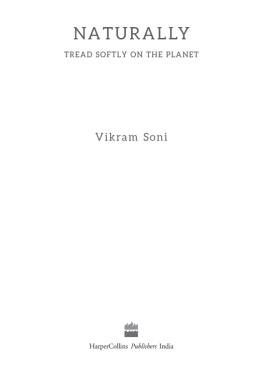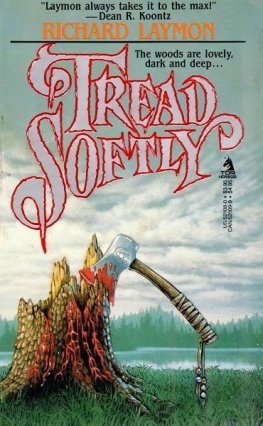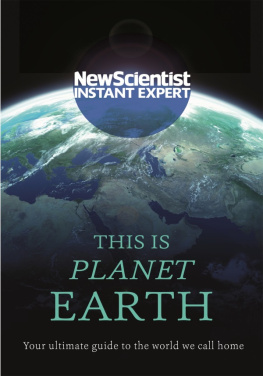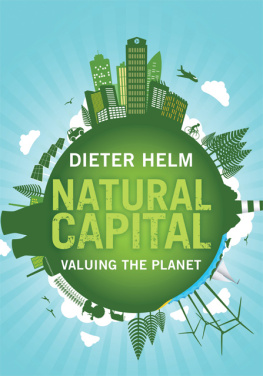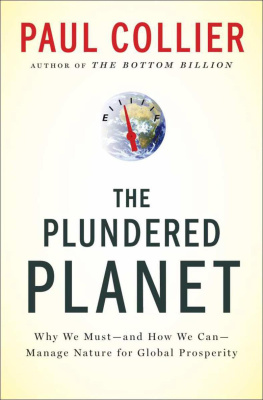ADVANCE PRAISE FOR THE BOOK
[Vikram Soni] has for many years been a leader in the fight against the destruction of the natural environment in his home country, India, and elsewhere throughout the planet. In this book he describes some of the exquisite balances which nature has evolved in the course of the Earths four-billion-year history, and makes an eloquent plea for a kind of technology much more respectful and symbiotic with them than what we have today.
Antony J. Leggett, winner of the Nobel Prize in Physics
(2003) and John D. and Catherine T. MacArthur Professor
at the University of Illinois (Urbana-Champaign)
In an age characterized more than ever by extremes of opinion, ranging from techno-euphoria to doomsday catatonia, with little in between that is credible, this book presents a refreshingly sane and practical path for humanity to carve out a modus vivendi with nature and to design a future that is fulfilling for all and destructive for none.
Ashok Khosla, former President, International Union for
Conservation of Nature and Natural Resources (IUCN)
President, The Club of Rome and Co-Chair, International
Resource Panel, United Nations Environment Programme
Vikram Sonis book highlights the significance of living in harmony with nature through the prism of human evolution which is rooted in the ethos and traditions of the Indian heritage.
R.K. Pachauri, former Chair of the Intergovernmental Panel
on Climate Change (IPCC), which shared the
Nobel Peace Prize with Al Gore in 2007
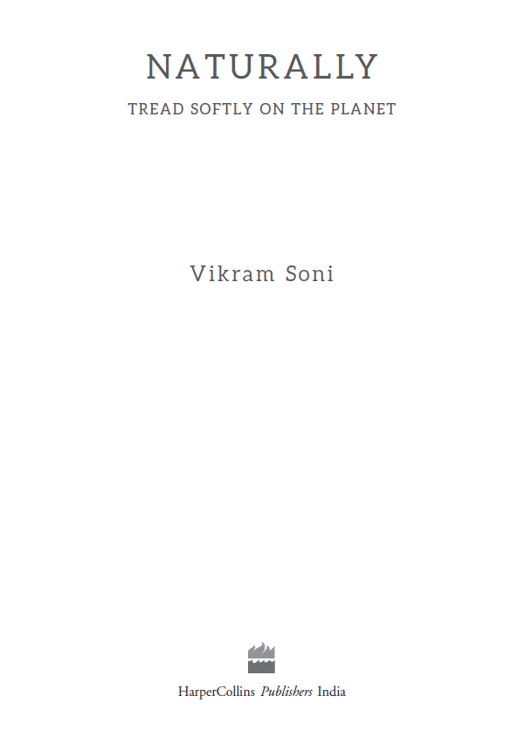
CONTENTS
3. DISTURBING THE EARTH:
CONTEMPORARY DILEMMAS
Our planet is our home, so caring for the environment is caring for our home, I heard the Dalai Lama say recently. He was being briefed on the dilemma of this Anthropocene Age, the current geological era in which the activities of one specieswe humanscontinues to decay the operations of the global systems that support life on our planet.
What amounts to a slow-motion species suicide can be tracked in many ways: the escalation of carbon released into the atmosphere that heats the planet; the growing number of bodies of water that no longer support life; the seemingly inexorable loss of species and destruction of the ecosystems they depend on for survival. This predicament has become humanitys biggest crisis, and demands we rethink our relation to our planet. And that innovative look, in turn, depends on people who have the required heart and mind.
Vikram Soni brings a unique blend of skills and outlooks to analysing the environmental predicament and proposing solutions, as this book attests.
My first encounters with Vikram were back in the early 1970s, when as a graduate student I had come to India and spent time at an ashram in the Kumaon hills, in the lower ranges of the Himalayas. Vikrams father at the time was the chief of forestry, and the Soni family lived in the richly forested hills. Vikram grew up in that natural setting, and naturally grew to love it.
Then years later I met Vikram againthis time when he came to lecture at MIT in his role as a well-respected theoretical physicist. His scientific bent has found fertile ground in exploring the causes and potential cures for our planetary crisis.
That crisis can be seen in terms of the planetary systems that support life on Earth:
- The carbon cycle: We hear much about humanitys carbon footprint, and how carbon dioxide emissions are warming the planet.
- Ocean acidification: These same emissions are changing the chemical balance in the oceans, which may have devastating results.
- Depletion of ozone in the atmosphere: Ozone protects us from sunburn, and chemicals used in refrigeration are the main culprits.
- Nitrogen balance: This chemical cycle has been under threat from man-made nitrogen, mainly in fertilizers.
- Fresh water: The worlds sources of drinkable water are shrinking, mainly from use for irrigation.
- Biodiversity: This system may be the most threatened, with the natural habitats that support a wide variety of species being destroyed for human use, from farming to factories.
- Chemical pollution: Industrial chemicals are so widely dispersed in air, water and soil that our bodies carry a chemical burden, no matter where we live.
Each of these systems is under dire threat, and Vikram uses vividly colourful examples to bring home the underlying causes as well as possible positive responses. This book offers a primer on our relationship to nature, and how to be a better partner.
Vikrams examples come from around the world, though many of his solutions speak to the particular needs of his native India. This Asian-focused set of solutions represents an urgently needed response to our planetary crisis. The rising economies and growing populations of Asian countries will mean greater challengesand richer potential for creative solutionsas this crisis mounts over the course of the current century.
Im particularly glad that this crisis has aroused the intellect and passion of Vikram Soni. We need more like him, and more of the innovative but well-grounded thinking he represents.
DANIEL GOLEMAN
New York City,
May 2015
Someone asked me what kind of a book is this, where will it sit on the library shelf?
First, it is about the evolution of lifethe only life we know. It is also about human conductespecially over the last 200 years. It is about science and the technology it has spawned. It is about the ethos of the living planet. It is about being at a boggling and critical crossroad in the present times. But, finally, it is about working out a scheme of living that can endure.
If we stop all emissions today will the Arctic and the glaciers stop melting? Will the sea-rise that is submerging the coral Eden of the Maldives stop? It is a foregone conclusion that some of the Maldives will go down, that much of the Arctic and the glaciers will recede. Even if we act now, climate change will last a hundred years and the ozone hole could take over a hundred years to close. But the species that have gone extinct will never come back.
While global warming and carbon emissions made up much of the sky at the Copenhagen Climate Summit (2009), dwindling rivers, disappearing lakes and vanishing forests are all on hold, just waiting to emerge from the shadows. It is a much larger angle than seen from the window of Copenhagen. The entire evolutionary network of life on the planet, created by millions of years of evolution, is being taken out. The landscapes, the seas and even the air that we breathed as children are fading into memory.
Since the trouble is on the planet, we have to really start by finding how the living planet works. Naturally digs deeper into the past, to the evolution of life on the planet, to find out where we are coming from. This book sets the direction by placing human interventions in the matrix of life on earth. From there it gathers wisdom to walk in symbiosis with the planet.
Both the human being and the planet are evolutionary beings, as are plants, seeds and geological formations that make our rivers, aquifers and forests. They are all symbiotically linked by evolution. They all enter into natural cycles that keep the planet stable. It is biodiversity that repeatedly makes the waste of one species the food for another to close the chain and make a natural cycle. Nature is an incredible production system without waste. Naturally starts by understanding these fundaments of the life process that hold the planet in a steady state.

